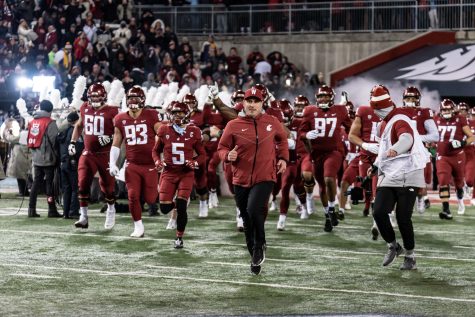Sally sells sea shells to pay off student loans
January 29, 2015
Here’s a riddle for academics: If Sally graduates with a psychology degree in 2013, how long will it take her to pay off $28,400 in student loans while making an annual $19,000 working as a coffee barista?
The notion that any education level less than a bachelor’s degree will lead to poverty is patently untrue. In fact, just the opposite: two-year degrees, vocational schools and trade schools often lead to a far higher salary than their four-year counterparts.
High schools encourage students to follow their passions, and promote that university is the way to get there. This advice is rosy and lovely – it’s just not always practical.
Many students heading off to four-year universities with stars in their eyes and a liberal arts degree in their hearts fail to weigh the risk-reward ratio of their futures. And how could they? They’re 18 years old, and have spent their entire childhood being told their level of education in any field is directly proportional to success, both financially and emotionally.
Administrators, teachers and high school culture promote university attendance as the end-all formula for success. Work hard, earn good grades, get into college. Lather, rinse, repeat. There’s an unwarranted stigma attached to seniors headed to community college and trade schools, even though these students might actually be the smart ones.
2011 statistics from The College Board indicate that 62 percent of public community college students graduate with no debt. Of the rest, 23 percent shoulder less than $10,000. President Obama’s “college promise” proposal is still in its early stages, but it could increase the zero-debt figure to 100 percent if the proposal is passed into law.
Meanwhile, a study at Harvard University found only 56 percent of students enrolled in four-year programs complete their degree within six years, which means 44 percent rack up their tuition bills and leave with nothing to show for it.
Sally’s case isn’t at all uncommon. Her debt of $28,400 is the average for 2013 graduates. We should start solving this brain-bender sooner rather than later. Recent graduates know what a lot of incoming freshmen don’t — that a bachelor’s degree doesn’t directly translate to a guaranteed job in their field of study. It’s time to prepare younger students for this reality and promoting alternatives to the debt-strewn, underemployed path of a four-year degree.
There are, of course, advantages to attending a four-year university. The college environment provides an opportunity for academic development and personal growth, allowing students to pursue their passions and turn them into careers.
The bad news is that it’s hard to find a passion that pays.
The National Association of College and Employers reports the average starting salary for the class of 2013 was $44,259, with the lowest salaries earned by humanities and social sciences majors at $37,791.
The crown of ‘most underemployed’ is held by business administration and criminal justice graduates, who are most likely to be overeducated for the work they end up doing, according to a recent survey of 68,000 workers by PayScale.
Lucky for us, the most popular fields of study at Washington State University are — you guessed it – business/management/marketing and the social sciences, accounting for 32 percent of the class of 2013.
Here’s some of the most recent numbers from the Bureau of Labor Statistics: Stonemasons average $50,700 a year. Mail carriers sit at $50,890. The mean electrician salary is $53,560. Elevator repairmen see an annual average of $76,220.
The really ironic part of it all is that I am a version of Sally, as I imagine many readers of a university newspaper are.
If all goes according to plan, if I fulfill my best-case scenario of employment at a daily newspaper after I graduate in May, I’m anticipated to rake in a whopping annual salary of $28,000.
Don’t get me wrong – I love journalism and I love what I do. But that figure, pulled from the Annual Survey of Journalism and Mass Communication Graduates, is hard to ignore.
I certified as a communication major when I was 19. Might I have gone in a different direction had I received more alternative guidance from my family, teachers, advisers and peers? I have absolutely no idea. I do know the number of people with a passion for reporting outweighs the number of journalists the market can hold. Same goes for social scientists, and filmmakers, and entrepreneurs looking to launch the Next Big Thing.
Look at your life, Sally. Look at your choices. Pursue your passions by all means, but be cognizant of the cost of living and your student debt. Start planning and budgeting now – there are ways for graduates to live happily within their means.
















